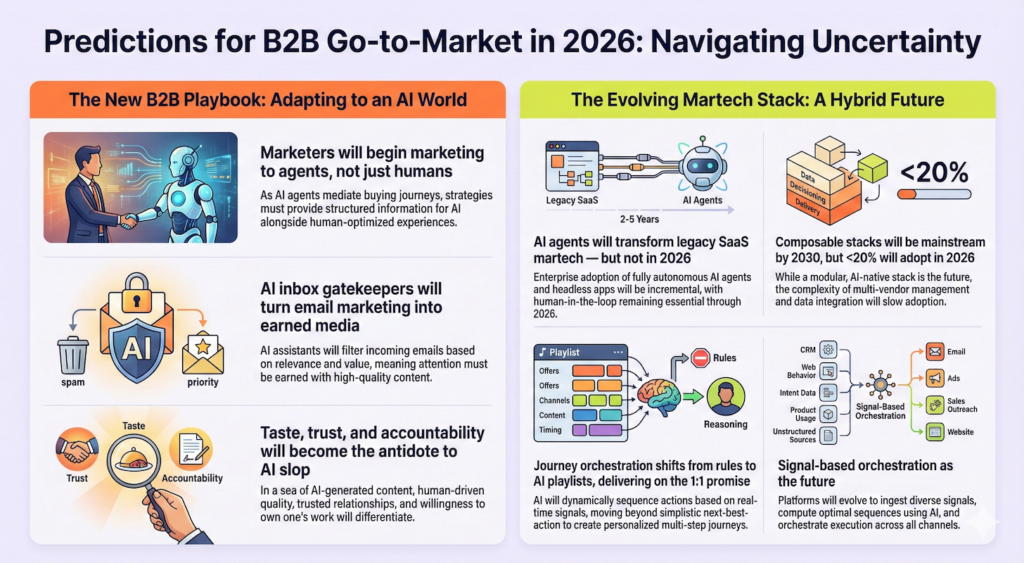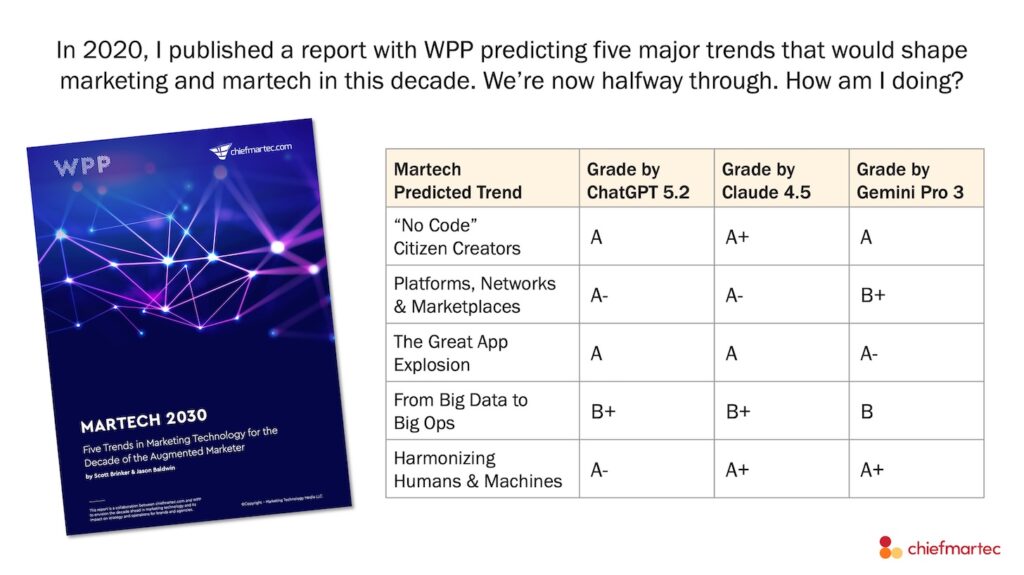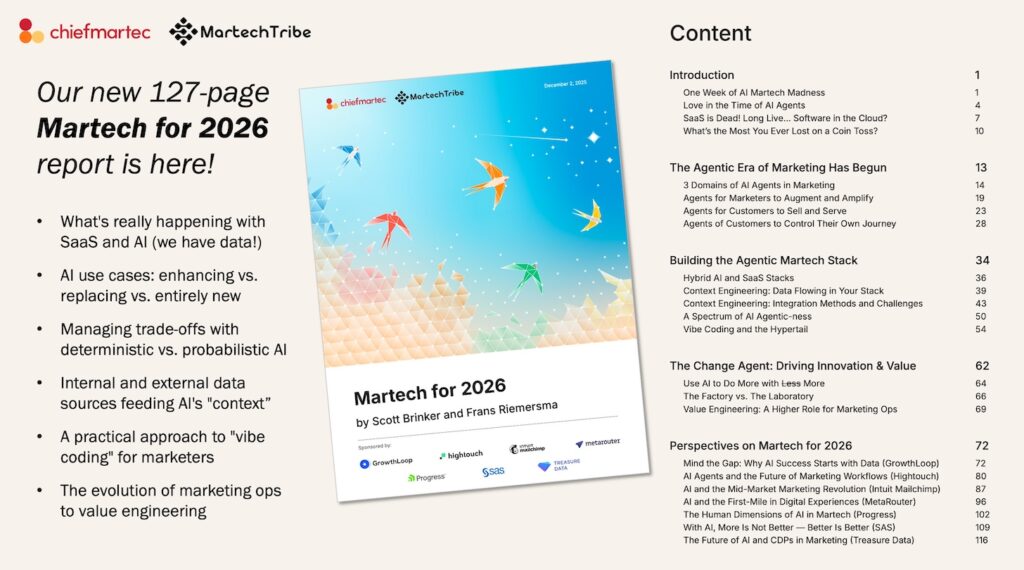The following is a follow-up guest post by Jeremy Epstein, CEO of Never Stop Marketing, to his previous articles on blockchain marketing, blockchain brand promises, blockchain brand “logos,” and blockchains as brand equity. Jeremy currently works with several of the leading companies in the blockchain and decentralization space.
DON’T MISS A CHANCE TO HEAR JEREMY SPEAK. He will be presenting at the MarTech Conference in Boston, October 2-4, with an in-depth talk on Blockchain and the CMO: The Next Era of Marketing. Register now for the “alpha” rate discount on tickets to guarantee your seat.
We live in a world of “big data.”
It’s pretty much common knowledge that an organization’s data sets are the source of competitive advantage. For example, if McDonald’s knows you go there once a week, that piece of information is something they can use to keep you a customer, instead of you switching to Burger King.
But what happens when this world of proprietary data systems goes away?
The potential of blockchain-based or decentralized systems offers two challenges to our current reality:
- The data doesn’t belong to McDonald’s. It belongs to you.
- Anyone can access the data about the transactions that occur on a given blockchain. (For example, here are the latest Bitcoin transactions.)
Let’s tackle #2 in this post, as I think it forms the basis of “data industrialization.” But first, let me explain what data industrialization is (at least as I understand it).
Data Industrialization Primer
I didn’t invent the term data industrialization. I heard it from Robbie Mehler. He’s your culprit, but here are the basics.
The era of physical industrialization was marked by humans’ ever-increasing ability to find, extract, manufacture and sell physical resources. Coal, oil, natural gas, diamonds, tungsten — you get the picture. We’ve done that exceedingly well. Probably too well when you think about the climate change impact, but that’s a different story. We’re getting better and better at this.
The next era of human existence, according to Robbie, is how we do the same with vast amounts of data.
To some extent, this is what Big Data is about. How do you find the right information (insights, really) from within a huge pool and extract it so that you can manufacture it, creating value for someone else?
Then, how do you operationalize the process of finding insights so you can systematically create value at scale?
(Robbie: how am I doing so far?)
Where Blockchains Meet Data Industrialization
As you know, a blockchain, at its core, is really a distributed database where no one can modify or delete past entries and there are rules — the protocol — for how new entries are made to the ledger.
That ledger is available to everyone. We’re all looking at the same Google Sheet or Excel document. Anyone can provide an interface to that ledger. That’s relatively easy. That’s what you see here for Ethereum or zCash.
A lot of people can also provide applications that enable you to interact with the protocol so you can participate. This is what Jaxx or BitPay do, for Bitcoin. They are software wallets.
But very few people provide a set of analytic capabilities that suck up all of this data and tell you what it all means and what you should do about it. Fewer still have figured out the scalable process for doing this.
That’s the opportunity.
In fact, I think that is what Jamie Burke is referring to when he talks about blockchain-enabled convergence. Blockchains are the mechanism through which 3D printing, drones, and more hit global scale. They are also the foundation for an entirely new set of AI solutions.
The Data Industrialization Opportunity in a Blockchain World
Putting Jamie and Robbie together, I think you start looking at the question of: who can put the best AI/machine learning solution on top of open, shared, blockchain-based data layers? Whoever does that gets some degree of competitive advantage.
If your Bitcoin wallet, for example, instead of being “dumb” (as it is now) is actually “smart” — in the sense that it can advise/help you make sense of the world — you’ll use that one versus a competitor.
You’ll also stay with them. In this world, customer lock-in doesn’t come from the idea of “let’s make it really difficult for people to leave.” It comes from “how well can we mine, extract, and deliver insights and value from the shared data layer so that people don’t want to leave.”
If a dApp (distributed application) provider, like a Bitcoin wallet, is unable to do that, the switching costs become an issue, because there basically are none. You’ll simply go somewhere else.
The Trillion Dollar Opportunities
The world’s top 50 mining (physical) companies are worth about $700 billion dollars. I suspect that we’ll see blockchain-based data mining companies that will easily take us into trillions of dollars of market cap.
Blockchains are step 1. Understanding what’s going on and turning that into insight systematically, that’s value creation.
Thank you, Jeremy!
Reminder: Jeremy will be speaking at the MarTech Conference in Boston, October 2-4, with an in-depth talk on Blockchain and the CMO: The Next Era of Marketing. Register now for the “alpha” rate discount on tickets to guarantee your seat.



